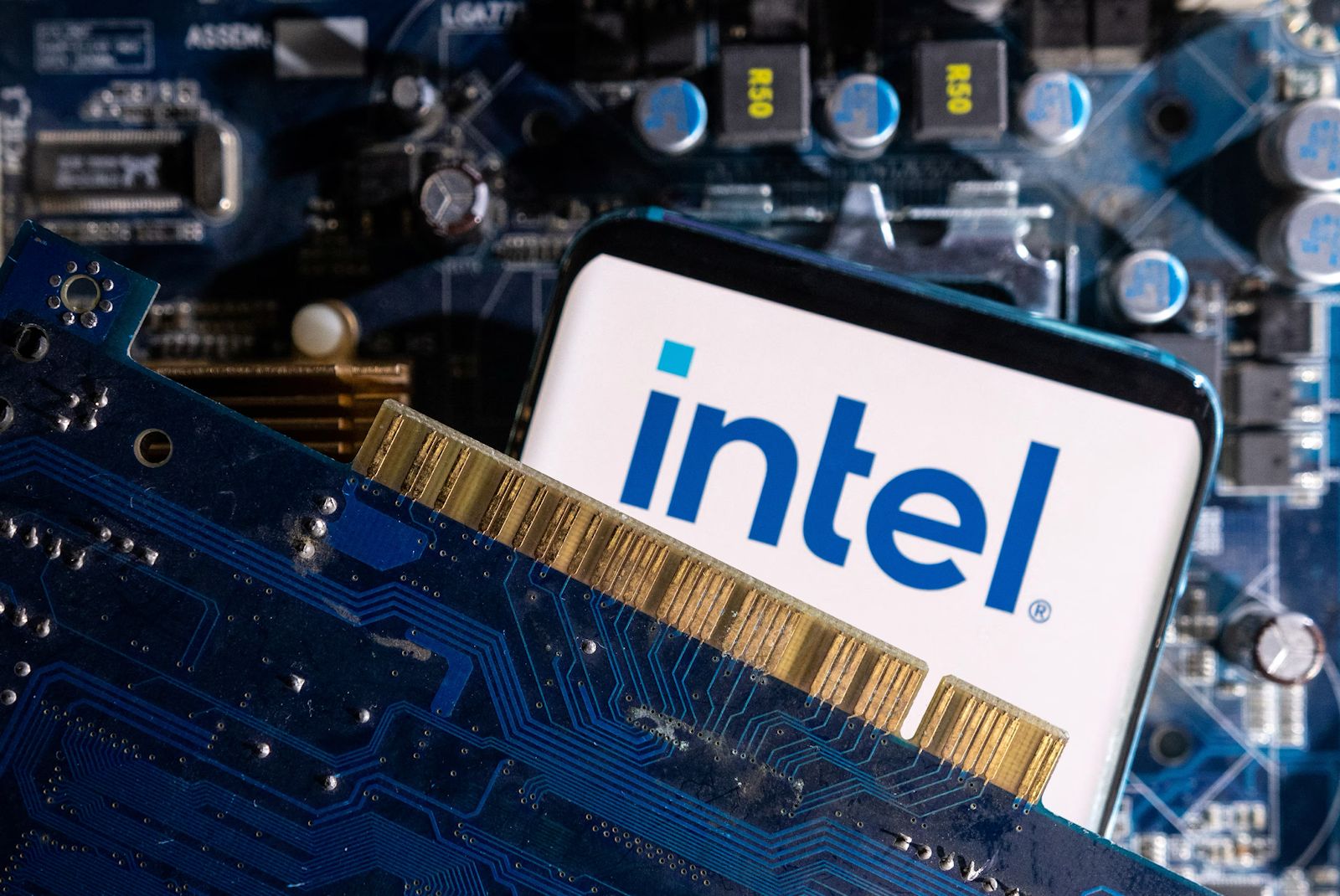Intel Corporation’s shares jumped 4.2% in after-hours trading on Thursday, following reports that the U.S. government may take an equity stake in the company. The news, first reported by Bloomberg, triggered a wave of investor optimism, with retail sentiment surging and analysts weighing the implications of such an unprecedented move.
Key Developments Driving the Rally
Intel’s U.S.-listed shares rose 7.4% during regular trading and gained another 4.2% after hours.
The potential government stake is linked to national security concerns and aims to bolster domestic chip manufacturing.
The report follows a high-profile meeting between President Trump and Intel CEO Lip-Bu Tan earlier this week.
Retail investor sentiment turned “extremely bullish,” with message volume on Stocktwits rising over 200% in 24 hours.
Strategic Rationale Behind the Government’s Interest
National Security Imperatives The U.S. government is reportedly considering the stake to support Intel’s expansion of domestic semiconductor manufacturing, particularly its new factories in Ohio. With growing geopolitical tensions and supply chain vulnerabilities, Washington sees chip independence as a strategic priority.
Intel’s Struggles and Strategic Importance Despite being a legacy player, Intel has lagged behind rivals like Nvidia and AMD in AI chip development and foundry efficiency. Its decision to invest in in-house manufacturing rather than outsourcing has strained margins. A government stake could provide capital and credibility to reinvigorate its roadmap.
Precedent-Setting Move If finalized, this would mark one of the largest direct government investments in a private tech firm for national security reasons. While the U.S. has previously offered subsidies and tax incentives, an equity stake would represent a deeper level of involvement.
Market Reaction and Investor Sentiment
Retail traders piled into Intel stock, with bullish sentiment scores hitting 96/100 on Stocktwits.
Over 71% of respondents in a Stocktwits poll believe the deal will go through.
Analysts speculate that Intel’s share price could break past the $28 resistance level if the deal materializes.
Political Undercurrents and Leadership Dynamics
The timing of the report is notable, coming just days after President Trump publicly criticized CEO Lip-Bu Tan, calling him “highly conflicted” due to alleged ties to Chinese semiconductor firms. Republican Senator Tom Cotton also raised concerns in a letter to Intel’s board, urging scrutiny of Tan’s investments.
Despite the controversy, Tan remains at the helm, and the government’s interest in Intel appears to be focused on its strategic assets rather than its leadership.
Implications for the Semiconductor Industry
Boost to Domestic Manufacturing A government-backed Intel could accelerate the buildout of U.S.-based fabs, reducing reliance on Taiwan Semiconductor Manufacturing Co. and other offshore players.
Competitive Pressure on Rivals Nvidia, AMD, and Qualcomm may face increased competition if Intel receives capital and policy support to catch up in AI and advanced node technologies.
Investor Recalibration Intel’s valuation could be re-rated if the government stake leads to operational improvements and strategic clarity. However, concerns remain about execution risks and political entanglements.
What Comes Next
No official confirmation has been issued by Intel or the U.S. government.
Analysts expect further developments in the coming weeks, possibly tied to broader industrial policy announcements.
Investors are advised to monitor regulatory filings and White House briefings for signs of progress.
Sources: Bloomberg News, Reuters, CNBC

